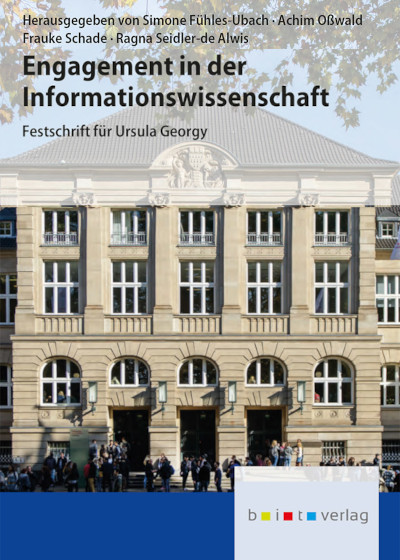 WEITERE NEWS
WEITERE NEWS
- Neuer Treffpunkt für Kultur und Kulinarik: Dussmann das KulturKaufhaus eröffnet das KulturKafé in der Friedrichstraße
- Nahost- und Islamforschung: DFG fördert Fachinformationsdienst der ULB Sachsen-Anhalt weiter
- 26. Jahrestagung der Deutschen Initiative für Netzwerkinformation (DINI)
- Deutsche Forschungsgemeinschaft fördert Fachinformationsdienste für Soziologie und Philosophie für weitere drei Jahre
- Die ETH-Bibliothek veröffentlicht ihre neue Strategie 2025-2028
- Start der Digitalisierung von DDR-Schulbüchern am Georg-Eckert-Institut
- Prof. Dr. Andrea Rapp in den Vorstand der Akademienunion gewählt
- Die Nomos eLibrary begrüßt zwei neue Partner

Aktuelles aus
L
ibrary
Essentials
In der Ausgabe
- Europäischer Flickenteppich
bei Open-Access-Büchern - Automatisierte Metadaten für Webarchive mit
GPT-4o im Praxistest: Kostenersparnis und Risiken - Die Deutsche Nationalbibliothek
auf Zukunftskurs –
der Strategische Kompass 2035 - Jenseits von Reskilling, Silodenken
und Stellenplänen: Was wir aus den
Human Capital Trends 2025
von Deloitte lernen können - Zwischen Tradition und Innovation:
Wo steht die Bibliometrie heute? - Podcasting in der Wissenschaft:
Chancen für Bibliotheken - Einsatzmöglichkeiten von Sprachmodellen bei der Forschungsbewertung
- Bibliotherapie und Mental Health
- Mehr Transparenz in der Wissenschaft: Nature veröffentlicht künftig standardmäßig Peer-Review-Berichte
- Versteckte KI-Prompts in wissenschaftlicher Forschung: Manipulation im Peer Review
- Open-Access-Tage 2025, Konstanz
- European Conference on Information Literacy (ECIL), Bamberg
- Open Science Conference, Hamburg

fachbuchjournal























































